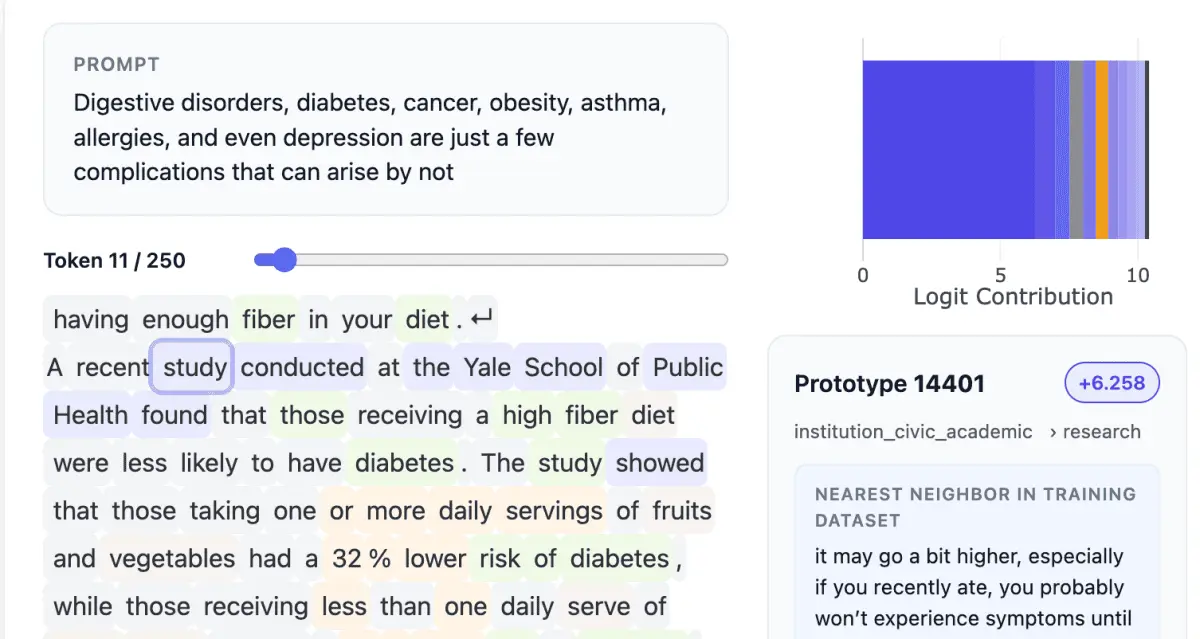AI-Powered Clinical Decision Support Systems Improve Maternal Health Care Outcomes by 69%
2 Sources
2 Sources
[1]
AI-related maternal health care software improves odds of good care by 69%, research finds
Women are more likely to receive good care during pregnancy where AI and other clinical software tools are used, a large review of research has found. In a paper published in eClinicalMedicine researchers have conducted a review of over 12,000 papers and 87 articles for different AI and related software tools, investigating the impact of their use in maternity settings. A meta-analysis of 35 studies found the odds of improved outcomes was 1.69-times higher in women cared for using CDSS, with data from over 5.2 million pregnancies in both High-Income and Low-and-Middle-Income Countries," said Neil Cockburn, Health Informatics Research Fellow, Department of Applied Health Sciences. "The government has made digital transformation of the NHS a top priority to improve quality of care and reduce costs, and Clinical Decision Support Systems will be a key technology in delivering these improvements. "However, there needs to be systematic, rigorous, and rapid evaluation of the tools being used in order to ensure they are doing what is expected while keeping up with the pace of change in technology." In a bid to encourage safer maternity services, academics from the University of Birmingham, Birmingham Health Partners, Keele University, Warwick University and the Shrewsbury and Telford Hospitals NHS Trust evaluated almost 50 different types of CDSS across 49 High-Income and 38 Low-and-Middle-Income Countries. The findings revealed that although there were variations in each situation and implementation of CDSS that they reviewed, most showed improvements in outcomes for the pregnancies. Neil Cockburn, lead author and Research Fellow in Health Informatics at the University of Birmingham said, "Maternity services are under huge pressure in the UK and internationally, and that makes it challenging to offer safe services. We can see this in the huge rise in hospitals receiving support from the Maternity Safety Support Program." "One solution is the use of AI and related software tools called 'Clinical Decision Support Systems' to help expecting families and health care workers to make safe decisions, so we looked at every evaluation of these kinds of software ever published in academic literature." In a study led by the Bristol University that was reviewed, a software program trialed was designed to help women decide if they wanted a vaginal birth after previously having a c-section. This CDSS supported women in feeling more confident about their decisions by providing them with useful information about risks and benefits, while reducing the rate of c-section overall. Another study supported by the Tommy's National Center for Miscarriage Research trialed a risk-prediction model to accurately triage women as at low risk of having an ectopic pregnancy, which can be life-threatening in some cases. These examples highlighted the possibility for CDSS to support both clinical and individual decision-making concerning maternity care; an important step for supporting safe pregnancies in the future. The team note that while substantial contributions can be made to maternity care with CDSS, it relies on appropriateness to each unique situation. As the first systematic review of CDSS, it is hoped that this will encourage evaluations of different CDSS to continue aiding clinicians, developers, and researchers in maternity care.
[2]
AI tools improve maternity care outcomes for women
University of BirminghamOct 23 2024 Women are more likely to receive good care during pregnancy where AI and other clinical software tools are used, a large review of research has found. In a paper published in eClinicalMedicine researchers have conducted a review of over 12,000 papers and 87 articles for different AI and related software tools, investigating the impact of their use in maternity settings. A meta-analysis of 35 included studies found the odds of improved outcomes was 1.69 times higher in women cared for using CDSS, with data from over 5.2 million pregnancies in both High-Income and Low-and-Middle-Income Countries. In a bid to encourage safer maternity services, academics from the University of Birmingham, Birmingham Health Partners, Keele University, Warwick University and the Shrewsbury and Telford Hospitals NHS Trust evaluated almost 50 different types of CDSS across 49 High-Income and 38 Low-and-Middle-Income Countries. The findings revealed that although there were variations in each situation and implementation of CDSS that they reviewed, most showed improvements in outcomes for the pregnancies. Maternity services are under huge pressure in the UK and internationally, and that makes it challenging to offer safe services. We can see this in the huge rise in hospitals receiving support from the Maternity Safety Support Programme." One solution is the use of AI and related software tools called 'Clinical Decision Support Systems' to help expecting families and healthcare workers to make safe decisions, so we looked at every evaluation of these kinds of software ever published in academic literature." The government has made digital transformation of the NHS a top priority to improve quality of care and reduce costs, and Clinical Decision Support Systems will be a key technology in delivering these improvements. However, there needs to be systematic, rigorous, and rapid evaluation of the tools being used in order to ensure they are doing what is expected while keeping up with the pace of change in technology." Neil Cockburn, Lead Author and Research Fellow in Health Informatics, University of Birmingham In a study led by the Bristol University that was reviewed, a software program trialled was designed to help women decide if they wanted a vaginal birth after previously having a c-section. This CDSS supported women in feeling more confident about their decisions by providing them with useful information about risks and benefits, while reducing the rate of c-section overall. Another study supported by the Tommy's National Centre for Miscarriage Research trialled a risk-prediction model to accurately triage women as at low risk of having an ectopic pregnancy, which can be life-threatening in some cases. These examples highlighted the possibility for CDSS to support both clinical and individual decision-making concerning maternity care; an important step for supporting safe pregnancies in the future. The team note that while substantial contributions can be made to maternity care with CDSS, it relies on appropriateness to each unique situation. As the first systematic review of CDSS, it is hoped that this will encourage evaluations of different CDSS to continue aiding clinicians, developers, and researchers in maternity care. University of Birmingham Journal reference: Cockburn, N., et al. (2024). Clinical decision support systems for maternity care: a systematic review and meta-analysis. eClinicalMedicine. doi.org/10.1016/j.eclinm.2024.102822.
Share
Share
Copy Link
A comprehensive review of research reveals that AI and clinical software tools significantly enhance the quality of care for pregnant women, with a 69% increase in positive outcomes when using Clinical Decision Support Systems (CDSS).

AI Enhances Maternal Health Care Outcomes
A groundbreaking systematic review and meta-analysis published in eClinicalMedicine has revealed that the use of Artificial Intelligence (AI) and Clinical Decision Support Systems (CDSS) in maternity care significantly improves outcomes for pregnant women. The research, conducted by a team of academics from various institutions including the University of Birmingham, analyzed over 12,000 papers and 87 articles to investigate the impact of these technologies in maternity settings
1
2
.Key Findings of the Study
The meta-analysis, which included data from over 5.2 million pregnancies across both High-Income and Low-and-Middle-Income Countries, found that the odds of improved outcomes were 1.69 times higher in women cared for using CDSS. This translates to a 69% increase in the likelihood of receiving good care during pregnancy when AI and other clinical software tools are employed
1
2
.Scope and Methodology
Researchers evaluated almost 50 different types of CDSS across 87 countries, encompassing 49 High-Income and 38 Low-and-Middle-Income nations. The study aimed to encourage safer maternity services by systematically reviewing the effectiveness of these AI-powered tools
1
2
.Specific CDSS Applications
The review highlighted several successful applications of CDSS in maternity care:
-
A software program developed by Bristol University helped women make informed decisions about vaginal birth after a previous c-section, resulting in increased confidence and reduced overall c-section rates
1
2
. -
A risk-prediction model supported by Tommy's National Center for Miscarriage Research accurately triaged women at low risk of ectopic pregnancy, potentially saving lives in critical cases
1
2
.
Related Stories
Implications for Healthcare Policy
Neil Cockburn, lead author and Research Fellow in Health Informatics at the University of Birmingham, emphasized the potential of CDSS to address the challenges faced by maternity services:
"Maternity services are under huge pressure in the UK and internationally, and that makes it challenging to offer safe services. We can see this in the huge rise in hospitals receiving support from the Maternity Safety Support Program," Cockburn stated
1
2
.The research aligns with the UK government's priority to digitally transform the NHS, aiming to improve care quality and reduce costs. CDSS is expected to play a key role in achieving these improvements
1
2
.Future Directions and Considerations
While the study demonstrates the substantial contributions CDSS can make to maternity care, the researchers emphasize the importance of appropriateness to each unique situation. As the first systematic review of CDSS in maternity care, this work is expected to encourage further evaluations and aid clinicians, developers, and researchers in improving maternal health outcomes
1
2
.The team also calls for systematic, rigorous, and rapid evaluation of these tools to ensure they meet expectations while keeping pace with technological advancements
1
2
.As AI continues to revolutionize healthcare, this research provides compelling evidence for the integration of CDSS in maternity services, potentially leading to safer pregnancies and improved outcomes for mothers and babies worldwide.
References
Summarized by
Navi
[1]
[2]
Related Stories
Recent Highlights
1
Google Gemini 3.1 Pro doubles reasoning score, beats rivals in key AI benchmarks
Technology

2
Pentagon Summons Anthropic CEO as $200M Contract Faces Supply Chain Risk Over AI Restrictions
Policy and Regulation

3
Canada Summons OpenAI Executives After ChatGPT User Became Mass Shooting Suspect
Policy and Regulation








